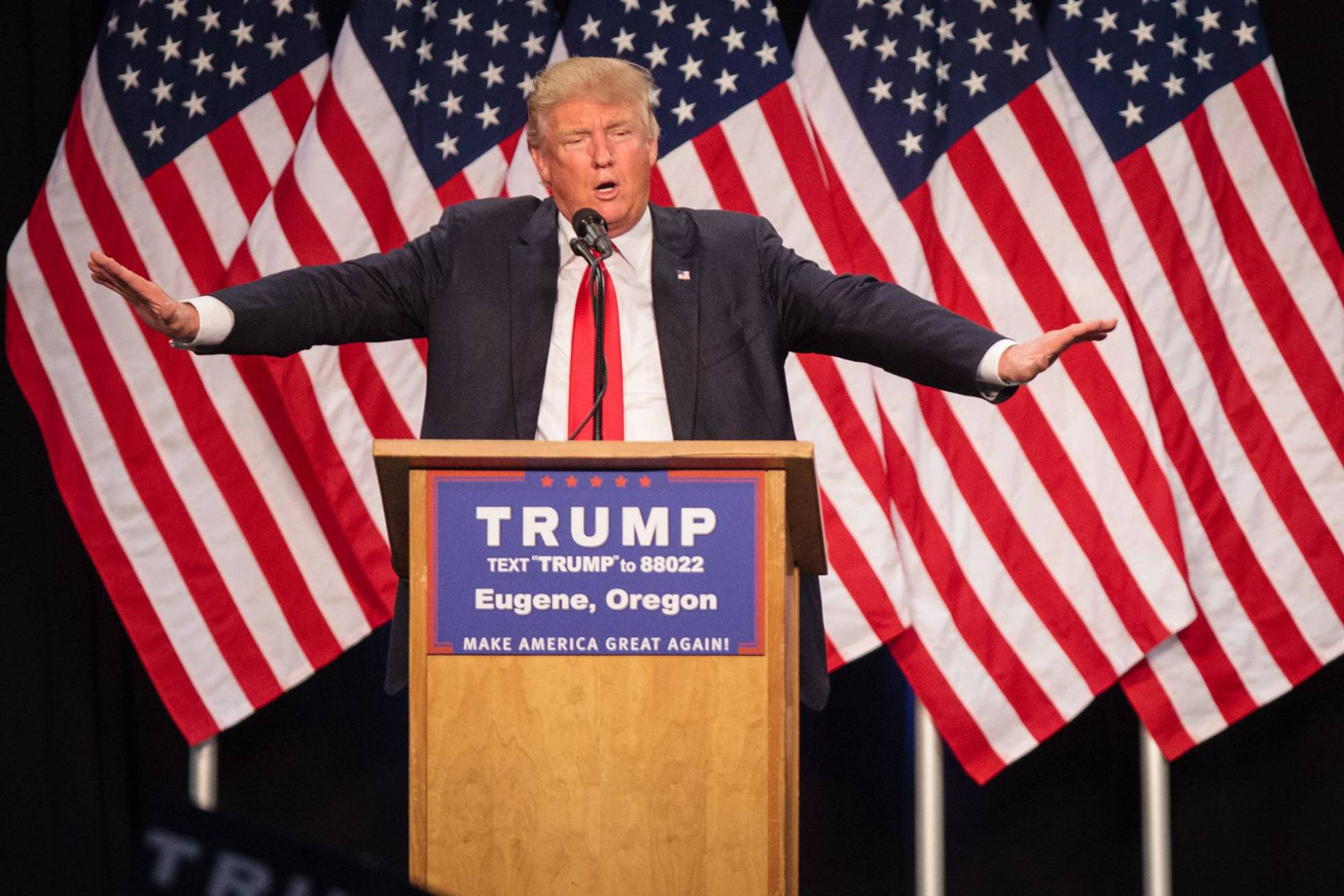
Trump’s campaign may have been a joke at the beginning, but now it is a different story.
It all began as a joke. Time magazine dubbed his presidential campaign a “marketing opportunity” for a showman in June 2015; in July, it was relegated to the entertainment pages of the Huffington Post; in September, the reality show candidate was foundering in interviews on matters of foreign policy while his opponents laughed. Little by little, the comedy became darker. Since Christmas, the candidate has topped every Republican Party poll and triumphed in New Hampshire, South Carolina and Nevada. He put Jeb Bush, the candidate of the “establishment,” out of the running, as well as Chris Christie, who soon offered him his support.
He buried the competition in Florida, knocking “Little Marco” Rubio out of the ring with insults that were amplified by the media, concerned about ratings and audience numbers. In Florida, whose immigrant population he has so often slandered, he won in every county (except rich Miami-Dade County). The Miss Universe show candidate had the last laugh against a Republican leadership with more funds than followers, who swore that he “would never control” the party. In 10 days, he turned the polls in Indiana around, seeing off eloquent demagogue Ted Cruz and the prudent John Kasich, two completely different candidates in a divided party. The “decline of the phenomenon” so often predicted by prime time analysts never arrived. In fact, the opposite happened. The “divided convention in Cleveland” that promised drama on our screens will now be his coronation.
The only ones who have dared to maintain steadfast opposition, such as the patrician Bush family, Mitt Romney and certain senators including Lindsey Graham, are not running for election in 2016. Trump’s success is attracting others. Even the speaker of the House of Representatives, Paul Ryan, who promised just a few weeks ago that he “would never completely support him,”* is now talking about “party unity.” That is the step that comes before bending the knee. Many within conservative circles are already talking about joining his government “not for reasons of ambition, but of duty.” So, the showman is the only one left standing against the weakest Democrat candidate since 2000, when Al Gore lost to George W. Bush despite the support of the extremely popular Bill Clinton. “Who would you rather have a beer with?” was the question Bush put to the electorate at the time.
Lacking her predecessor’s energy or her husband’s charisma, Hillary Clinton has struggled to prevail against Bernie Sanders, who was still winning primaries even when his campaign was lost. Clinton’s message lacks the energy and empathy that Sanders has in spades. The main risk is that those who were voting for Sanders will not support Hillary and will vote for her opponent instead. Those who downplay this risk are confusing political ideology and a populist movement; the candidate feeds on the rejection of the establishment and the political-economic consensus of the past two decades. It is ironic that the populist alternative is represented by a megalomaniac millionaire, but that is how it is done, in much the same way it is done through kleptomaniacs who promised anachronistic revolutions in Latin America. The candidate has a solution to the social anxiety created by an economic recovery that has exacerbated social inequality and extolled political correctness; according to his vision, America’s decline is down to the “Mexicans” and “China.” Clinton has funding, but she does not have an answer that resonates with voters. When she tries, Americans change the channel.
A master of the turnaround, the candidate has now aligned himself with Clinton’s left on issues such as trade, harassing the politician who personifies the Washington establishment (and who already lost an election that was “in the bag” in 2008). The tie between the two in the latest polls in key states such as Florida and Ohio is enough to make your blood run cold. And that is just the beginning; no one who has seen Hillary speak in front of a large audience would bet on her in the televised debates.
In his final essay in The Federalist (No. 85), founding father and now posthumous theatrical sensation, Alexander Hamilton, issued a warning to those who were considering not ratifying a Constitution designed specifically to ensure that the American republic did not follow Rome’s path toward tyranny: “No partial motive, no particular interest, no pride of opinion, no temporary passion or prejudice, will [allow a citizen to] justify to himself, to his country, or to his posterity, an improper election of the part he is to act.” The same applies to the November election. It would be a tragedy for Europe, (another) slight for Latin America and a celebration for Vladimir Putin. Without humor, we must treat it as the existential threat it is.
*Editor’s note: This quote, accurately translated, could not be verified.

Leave a Reply
You must be logged in to post a comment.